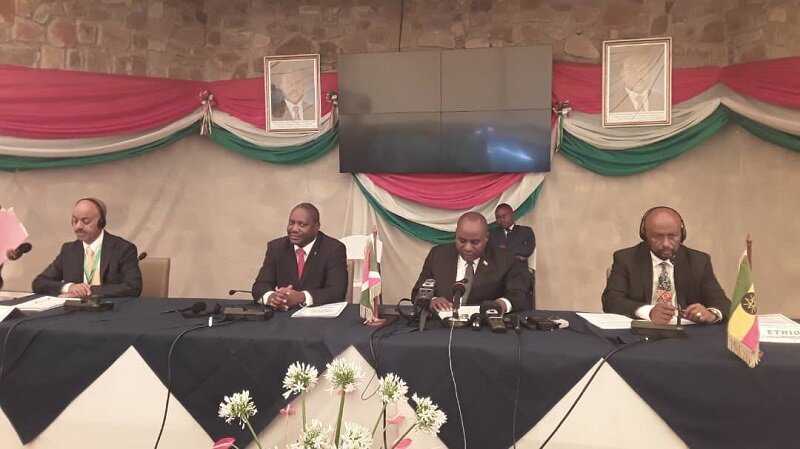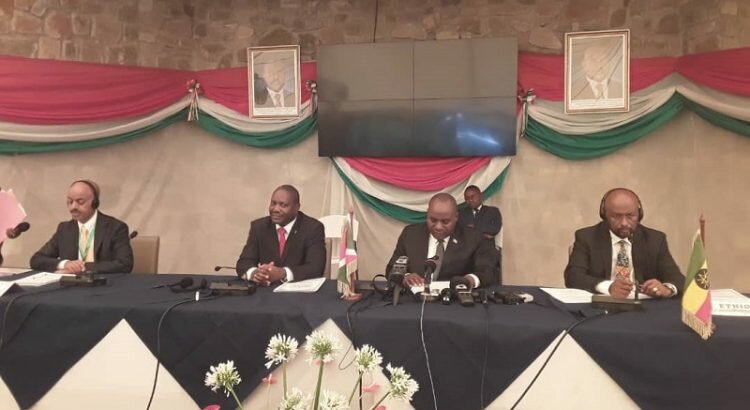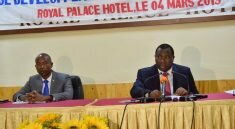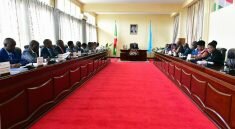
BUJUMBURA August 16th (ABP) – The Twenty-sixth Annual Conference of Ministers Responsible for Water in the Nile Basin Countries was held in Bujumbura on Monday August 13th, with the Nile Basin Initiative (NBI) strategic orientation and budget adoption on the agenda.
Indeed, he recalled, water is, for today and tomorrow, considered as a driving force for socio-economic development of the Nile Basin peoples in general and that of Burundi in particular. According to the second deputy president of the Republic, the Burundi government’s vision for the water sector by 2025 is: “State where water is available in sufficient quantity and quality to meet the needs of current and future populations, and used in an efficient and equitable manner for sustainable socio-economic development without compromising the environment “.Opening the conference, Second Deputy President Joseph Butore said Ministers were meeting to discuss together progress, constraints and challenges, with the aim of finding solutions to the problems that haunt the NBI and thus explore the opportunities that will keep the hope aspirations of people in the countries of the Nile Basin.
The management of the water sector remains, according to him, a major challenge facing the pollution of water, air, waste and the reduction of protection zones. Burundi, like other countries, is subject to the effects of climate change, he said, adding, “The rainfall deficit has resulted in the aggravation of aridity and the significant reduction of major wetlands, and the drying up of several rivers and lakes”. Pouring rains and extreme temperatures are also climatic phenomena, which today reveal the increasing vulnerability, resulting in the recrudescence of diseases related to water contamination and air intoxication. “We must therefore act together to find solutions to these various challenges that are preventing us from achieving our goal,” said Butore.
However, whether at the national or international level, development actors acting in isolation have had little success, he said, adding that in terms of cooperation, each country must recognize that the course of Shared water forms a unique and coherent system to manage together with all residents. He recalled that since the NBI’s inception, its objective was to make the riparian countries of the Nile River work together to develop the resources of the Nile Basin for the benefit of all through its vision of “Achieving sustainable socio-economic development, through the equitable use of the common water resources of the Nile Basin and the benefits that flow from them “.
To achieve this goal, countries must remain united in the NBI that unites them and continue to resolve together the issues that haunt this community, continued the second deputy president of the Republic. According to him, harmonious solutions will come from privileging the dialogue, which will make it possible to maximize more advantages in the good management of the water resources, and thus to arrive at the harmonious development of the water resources of the Nile Basin.
Note that the Minister of Environment, Agriculture and Livestock, Mr. Déo Guide Rurema, was elected during that Ministerial conference to spearhead, for one year, the Council of Ministers of the NBI member countries, replacing Ethiopian colleague Bekele Seleshi, while southern Sudanese Alier Bullen Oka will be the Executive Director of the NBI for a one-year term.





